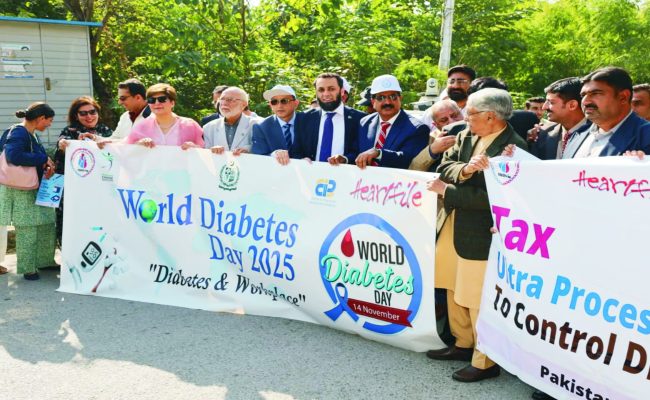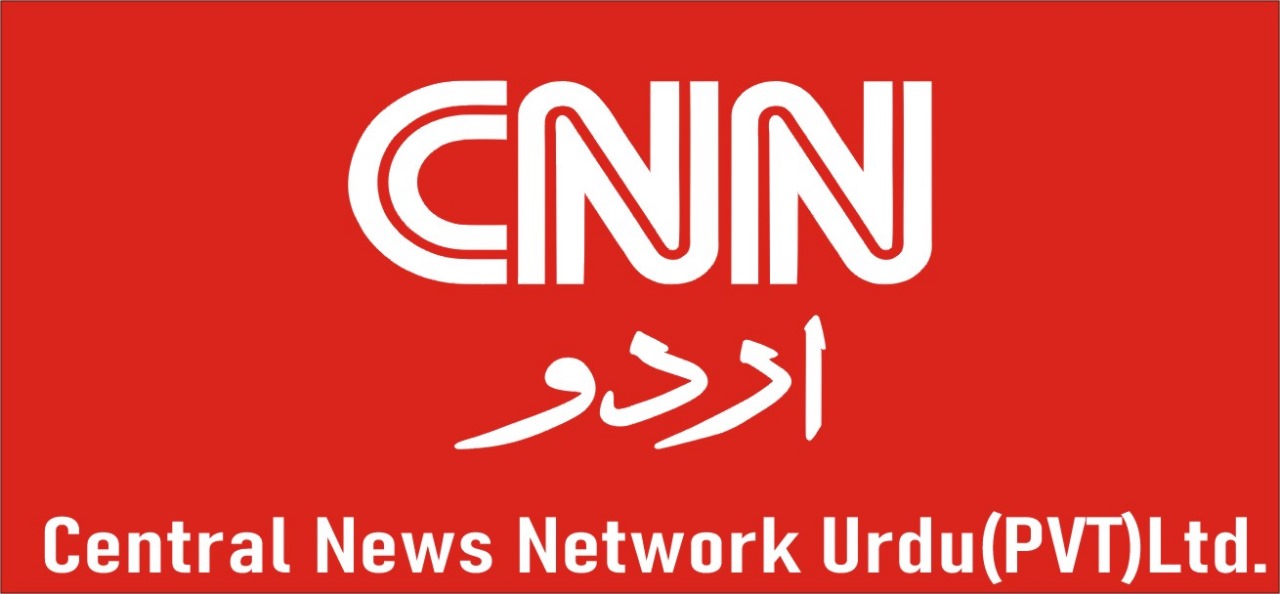By: ABID SIDDIQUE CHAUDHRY
The world Ambassador
TWA
_________
Islamabad: To commemorate World Diabetes Day, the Pakistan National Heart Association (PANAH) and its partner organizations held a large-scale Health Mela at the National Press Club Islamabad, followed by an Awareness Walk. Federal Minister for Information and Broadcasting, Mr. Atta Tarar, graced the occasion as the chief guest.
Health experts revealed alarming statistics, noting that diabetes cases in Pakistan have surged from 6.3 million in 2011 to 33 million in 2021, with an additional one million people at the pre-diabetic stage. This rapid increase has placed Pakistan among the top countries globally in diabetes prevalence, with one in every three adults affected. The country now faces approximately 1,100 diabetes-related deaths daily. Experts warned that without timely and effective policy interventions, the number of people living with diabetes in Pakistan may climb to 70 million by 2050.
The awareness walk was jointly organized by PANAH, Heartfile, Pakistan Youth Change Advocates (PYCA), and the Centre for Peace and Development Initiatives (CPDI). Health experts, government officials, civil society members, youth, journalists, and individuals from various sectors participated. Speakers highlighted that unhealthy diets and ultra-processed products (UPPs) are major contributors to diabetes and other non-communicable diseases (NCDs). Participants carried placards urging the government to implement strong public-health policies, including increased taxation on UPPs, mandatory Front-of-Pack Warning Labels (FOPWL), and a complete ban on partially hydrogenated oils (PHOs)—a key source of trans fats.
Under the patronage of Maj. Gen. (R) Masud Ur Rehman Kiani, President of PANAH, a free Health Mela was held, providing hundreds of attendees with free medical consultations, diagnostic tests, and medicines. Specialist doctors from cardiology, oncology, gynecology, pediatrics, dermatology, psychiatry, ophthalmology, and urology offered services aimed at early detection, disease prevention, and promoting healthier lifestyles to combat the rising burden of diabetes and other NCDs.
The event also featured online podcast discussions, where representatives from PANAH, Heartfile, CPDI, PYCA, and medical experts spoke on public-health challenges. They highlighted the harmful effects of UPPs on health and stressed the need for strong policy action to reduce their consumption.
Experts emphasized that sweetened beverages are the leading source of sugar intake in Pakistan, with liquid sugar disrupting metabolism, contributing to excessive calorie intake, and significantly increasing the risk of Type 2 diabetes. Research shows that regular consumption of sweetened drinks raises diabetes risk by 30%, a threat that can be mitigated through effective fiscal policies such as taxation.
Policy specialists further stressed the importance of mandatory Front-of-Pack Warning Labels (FOPWLs) on UPPs, noting that clear, visible labels help consumers make informed choices by identifying products high in sugar, salt, and unhealthy fats. International experience demonstrates that such labeling reduces the consumption of unhealthy foods and encourages reformulation within the food industry.
Health experts also urged the government to enforce an immediate ban on partially hydrogenated oils (PHOs) in Pakistan. These oils are a major source of industrial trans fats—harmful substances with no health benefits and a significant cause of cardiovascular diseases. The World Health Organization (WHO) has recommended their complete elimination, and implementing a PHO ban in Pakistan would be a major milestone toward saving thousands of lives annually and improving national public health.


